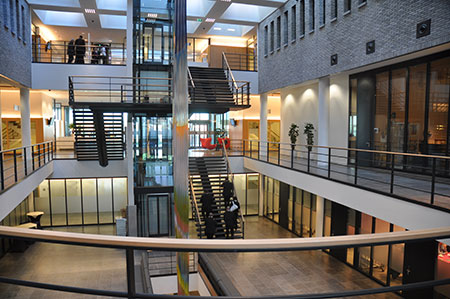Design in Policing
Could police, art, design and architecture have something in common? The answer is yes: a building.
The new headquarters of Europol was officially opened by Queen Beatrix of The Netherlands in July 2011.
One of the safest and most secure buildings in Europe, the domicile of Europol has won the FIABCI Prix excellence, The Netherlands Award 2012 in the category 'Office'.
The book on design in policing "It started with a thought" looks at Europol's headquarters, its design and architecture and the artworks inspired by the mission and values of the organisation.
The book focuses on the history and evolution of Europol from its early beginnings as the Europol Drugs Unit to what it is today – a world leader in intelligence policing which works closely with law enforcement agencies in the 28 EU Member States on 18 000 serious international organised crime and terrorism cases per year.
The merging of security and art can be seen in the EU's longest glass wall installation: Europol's 250-metre long security fence. This innovative design creates transparent protection for Europol's highly secure headquarters.
The photo exhibit decorating the corridors at Europol, propose different perspectives of the European Union: for example, a 15-minute photographic walk through the Member States.
As well as state-of-the-art design, Europol's new headquarters has an extremely low carbon footprint, thanks to the features which have been installed, including 4600m2 of green sedum roofs.
Police, art, design and architecture all have Europol in common, but also the idea that innovation triggers evolution and evolution is the process by which Europol continues to prove its excellence in the law enforcement arena.
